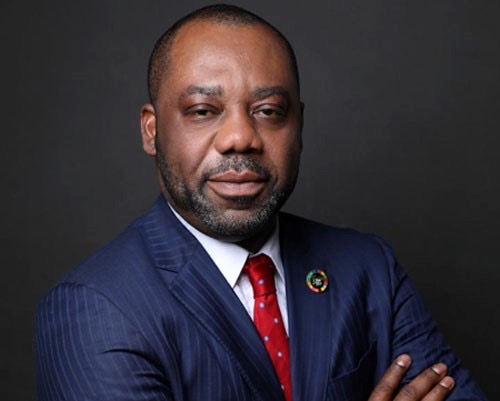The healthcare sector in Africa has suffered several setbacks over the years that have stifled its growth and led to many avoidable deaths and life imbalances for many.
These challenges, which cut across human, institutional, financial, technical, and political developments, will be brought to the fore in this write-up, which will also highlight some opportunities that have been opened up due to these challenges, which need to be maximised effectively.
As much as there are many challenges confronting the health sector in Africa, most of them are interwoven and have causal effects on each other, as will be pointed out in this piece.
Healthcare systems anywhere across the world require adequate funding for effectiveness, but in Africa, the sector experiences underfunding, which has posed a great risk and led to the decay of the system.
Though African leaders under the Abuja declaration in 2001 committed to at least 15 percent of their annual spending to the health sector to be able to address the unending health challenges, the actualization of this is far from reality as many African countries still have issues committing to it.
While many African countries have increased their health spending over the years, overall, they are yet to meet the target.
Take, for instance, Nigeria, where the allocation to the health sector in the last few years has been far from the agreed 15%. For a country with over 200 million people, in 2023, it had a 5.75% budgetary allocation for the health sector, an increase from 4.7 percent in 2022. This poses a serious challenge for the sector.
Due to underfunding as a result of inadequate budgetary allocation, the sector encounters issues in addressing essentials such as immunisation, accessing important drugs, and addressing the health workforce, which in turn inhibits efficiency in the sector.
Another critical effect of underfunding is inadequate infrastructure. All across African countries, the healthcare sector faces a huge infrastructural deficit. Having adequate infrastructure for effective healthcare delivery requires huge funding, but where there is no political will for the resources, health centres are faced with dilapidated infrastructure and obsolete equipment, most times with no iota of current technological innovations for enhanced services due to a lack of access to funding.
Outside of that, there is also the challenge of inadequate human resources, which has its roots in poor funding. Over the years, because of insufficient funding, there have been cases of unsatisfactory working conditions, lack of professionalism, heavy workloads, job dissatisfaction, and many other complaints by health workers, which have led to a brain drain in the health sector, thereby posing risks to people’s lives.
This was corroborated by the World Health Organisation, WHO, in a 2022 survey that found that Africa has a ratio of 1.55 health workers, i.e., physicians, nurses, and midwives per 1000 people, a development detrimental to best practices.
This deficit in skilled professionals leads to poor service delivery at all levels and seems to get worse in rural areas, which are most often at a disadvantage in terms of the inadequate number of skilled health workers due to the lack of basic social amenities in rural areas.
While many rural dwellers across African nations have come to accept this, it only points to another critical challenge: poor leadership and management. For many African nations, bad leadership that breeds corruption has been the major hindrance to socio-economic development, a factor that, among other things, in the health sector leads to limited access to essential healthcare services, increased mortality rates, the prevalence of diseases, and malnutrition that causes other ailments.
Bad governance in the African health sector has killed several innovative initiatives, which has made the sector redundant, thereby encouraging medical tourism for the rich and powerful at the expense of the average person.
Opportunities in the African health sector
Despite all these challenges, it is not a completely lost case for the health sector in Africa, as there are many opportunities that, if well maximised, would not only improve the sector but also bring more socioeconomic development to the continent as a whole.
The first of these opportunities is keying into the manufacturing segment of the health sector, i.e., the pharmaceutical sub-sector.
If there is one thing that is urgently needed in the health sector in Africa, it is the improvement in its pharmaceutical manufacturing because, currently, Africa accounts for around 3% of global manufacturing while it imports about 70–80% of medicines.
This opens up the sector to huge manufacturing opportunities to make the continent strong on its own in terms of producing its medications rather than depending mostly on importation, even at times of critical need.
Beyond pharmaceutical manufacturing, there are also opportunities for the production of equipment and other medical supplies, like personal protective equipment, that are needed for the safe running of the sector.
This opportunity, as well as the need for more funding, also leads to an opening for more private-public partnerships (PPPs, in the sector.
The partnership can help provide the needed funding for healthcare projects across African nations, bring relief to the governments, succour to the people, and bring profits to the private sector.
With the African health sector estimated to be worth $259 billion by 2030, according to the Foresight Africa 2022 report, it remains a viable investment opportunity for the private sector.
Also, there is the opportunity for emerging technology developers to tap into the African health sector to introduce new technologies capable of advancing the sector. Given present realities in the 21st century, emerging technologies have become essential to all spheres of life, including the health sector. As such, it has become highly important for technological innovations to be adopted.
It is expected that such innovations would bring solutions, especially in the area of data collection and others, to the underdeveloped healthcare systems in Africa and enhance service delivery.
Above all, there is a huge opportunity for investment in human resources, which is critical to the survival of the health sector. Going by the challenges currently being faced by workers in the sector, the opportunity of investing in training and retraining skilled professionals on more advanced skills can be of immense help to taking the sector to desired levels.
Training is a necessity for advancing the sector because, without adequate training and equipping of health workers, every other expansion and innovation in the sector will amount to little or nothing.
Though embracing these opportunities might come with their challenges, in the long run, they have the potential to lift the health sector across African nations onto a path of growth.


